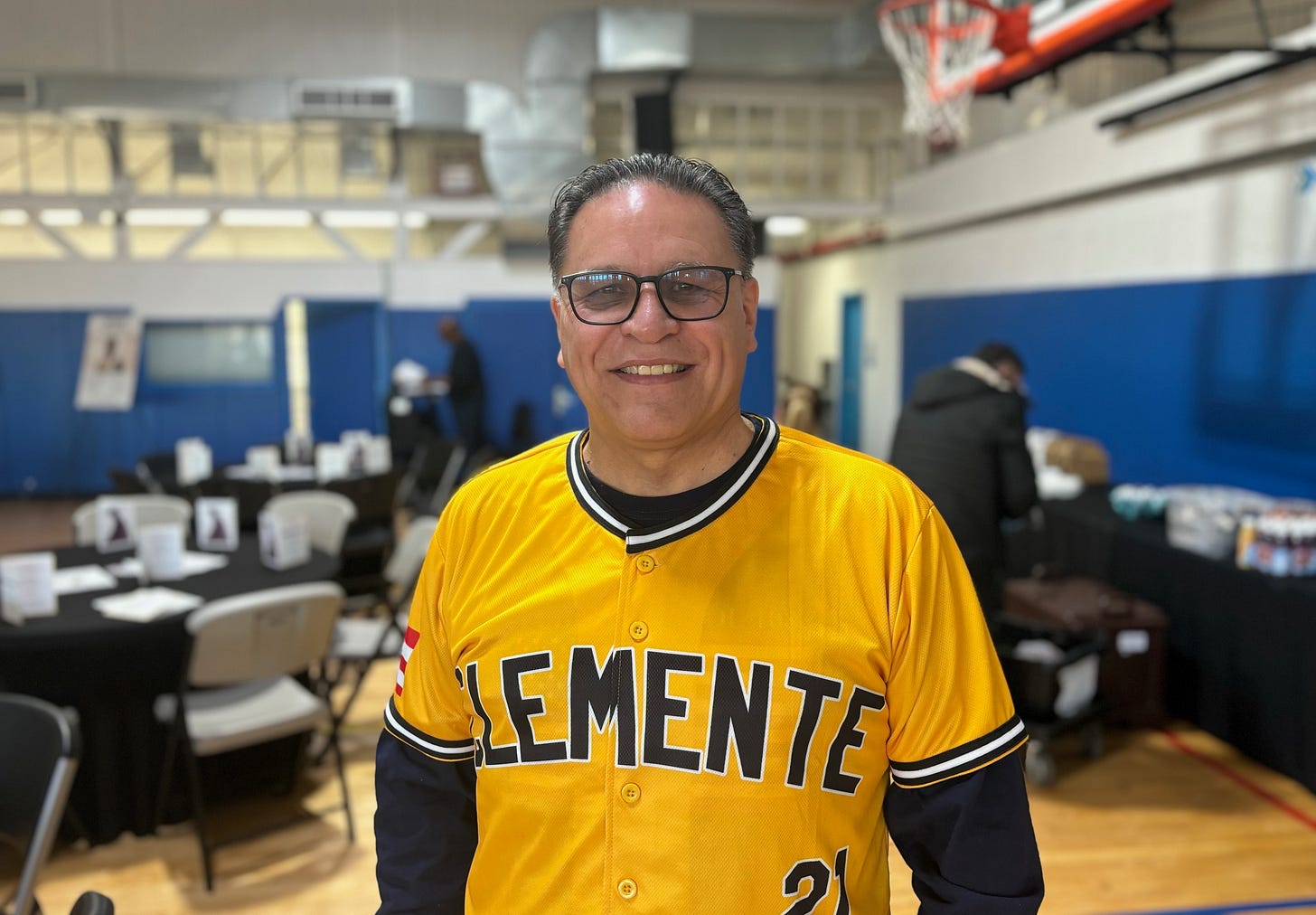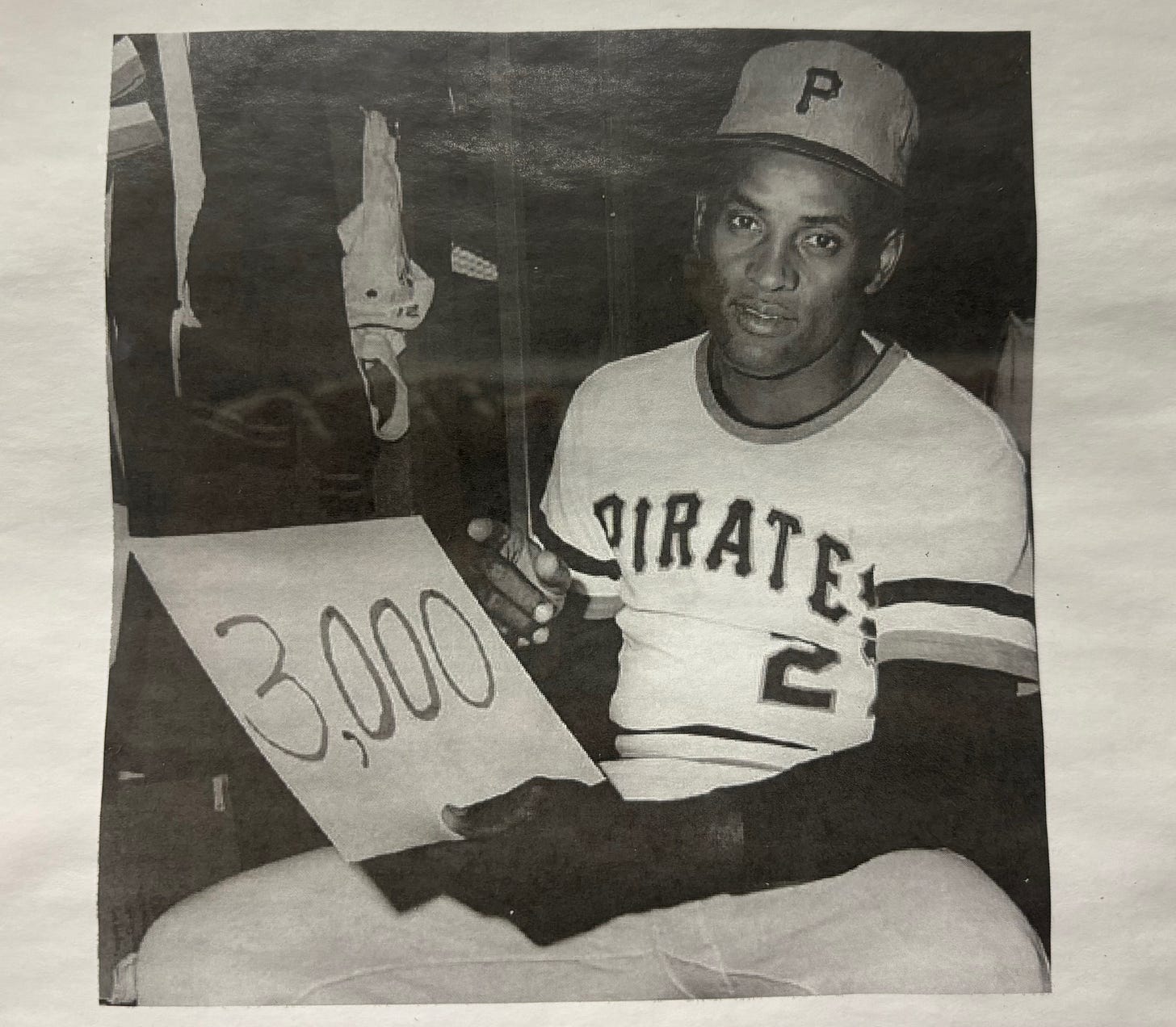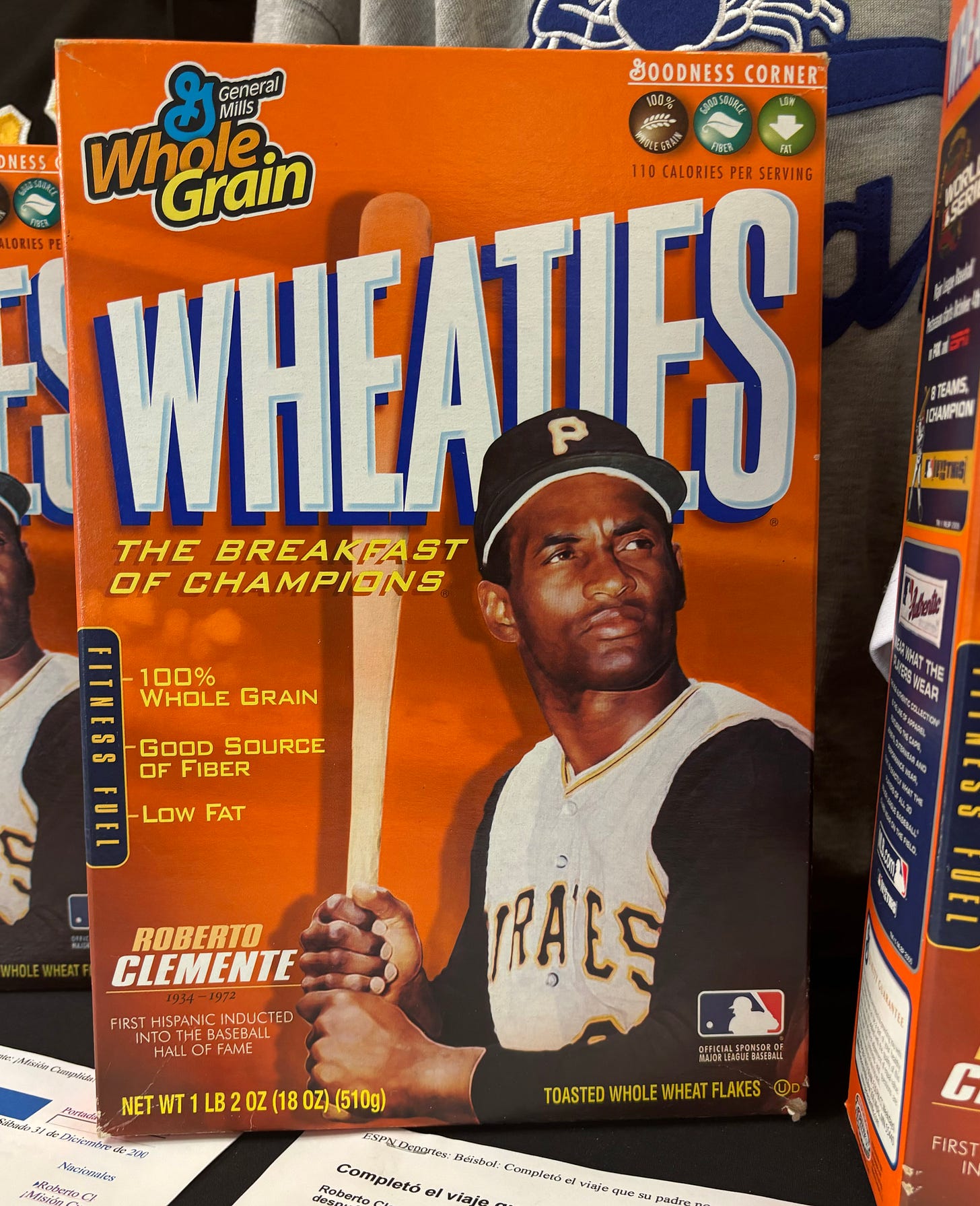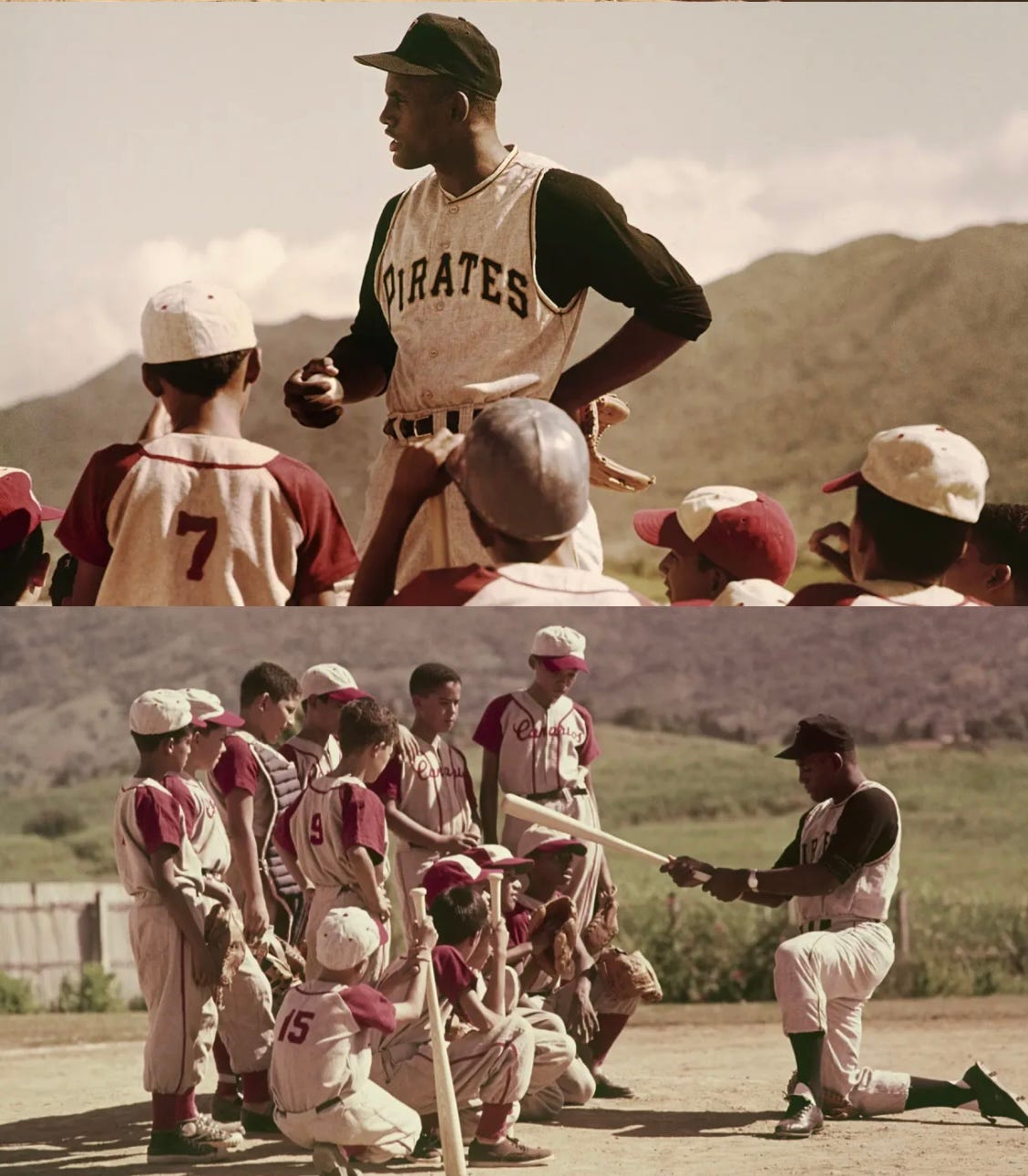Roberto Clemente was a baseball legend, but his greatest achievement wasn't playing baseball
On December 31, 1972, the baseball star perished in a plane crash while personally bringing earthquake relief to Nicaragua
It was around 9:20 p.m. in Puerto Rico. In less than three hours, it would be a new year, 1973. Baseball star Roberto Clemente, the pilot, co-pilot (who was also the owner of the plane), the flight engineer, and a friend of Clemente's boarded the DC-7 loaded with food and relief supplies. Their destination was Nicaragua, on the western side of the Caribbean, which had been devastated just eight days earlier by a powerful earthquake. As many as 11,000 people were killed, an estimated 20,000 injured. Hundreds of thousands were left homeless.
Clemente, who had played baseball in Nicaragua with the Puerto Rico Senadores, wanted to help by sending food and other relief supplies. He helped gather and dispatch several planeloads but, on arrival, they were commandeered by the corrupt Nicaraguan armed forces.
Determined to stop that from happening again, he felt that if he personally accompanied the assistance, it wouldn't be looted. "They won't steal from me," Clemente said.
The plane took off from San Juan's Isla Verde Airport. Within seconds, one of the engines failed. The pilot, Jerry Hill, banked in an attempt to abort the flight and return to the airport. Instead it crashed into the sea. Everyone on board was killed. Only Hill's body was ever recovered. Investigators would later conclude the plane had been overloaded, the cargo unevenly distributed and the aircraft had mechanical problems.
Clemente was 38 and had just finished his 18th season in Major League Baseball with the Pittsburgh Pirates. The previous October, he had recorded his 3,000th hit. He had intended to play again the next season but was already considered one of the greatest players in the history of the sport. He was especially revered in his native Puerto Rico. That tragic flight of December 31, 1972 would be his second act. It lasted only three minutes.
photo credit: Project Club Clemente exhibit
Half a century later, I was spending a week as a volunteer English teacher at the University of Puerto Rico's campus in Aguadilla, in the island's northwest corner. One day, among my class of a half dozen or so, one of the students was wearing a Pirates jersey with Clemente's number 21. The student said he played baseball and, of course, he knew who Clemente was. I asked who else did. No one raised their hand.
Eliezer Rodriguez
It is Tuesday morning, December 31, 2024, the 52nd anniversary of Clemente’s death. I am among an audience of 75 seated at round tables in the gymnasium of the YMCA in the Castle Hill section of the Bronx. The event is a breakfast and remembrance ceremony tribute to Roberto Clemente on the 52nd anniversary of his death. The host is a non-profit called Project Club Clemente that is dedicated to building a museum (and online museum) to honor Clemente, but also Latino baseball players generally. There is already a Roberto Clemente Museum in Pittsburgh. But the PCC's founder, Eliezer Rodriguez, a newly elected civil judge, believes there should also be one in New York City to keep Clemente's legacy alive and his story known. It would also award academic scholarships. New York City is home to nearly 600,000 Puerto Ricans. Roughly half of them live in the Bronx.
Officially, the PCC started in 2001. But it really traces its roots to a recurring dream Rodriguez had a few years earlier. He dreamed that there are four boys who play baseball. Each season, the boy who has the best year would get a replica of Clemente's Pirates jersey. One of the boys who starts out a weak ballplayer got better and better until one year he is the best. He has earned the shirt. But Clemente dies and the boy is unable to collect his coveted prize.
'That led me to research Clemente," Rodriguez told me before the ceremony.
The more he learned, the more his admiration for Clemente grew. Not just because of his baseball prowess, but because of who Clemente was as a person. As a fiercely proud Black Puerto Rican, he was shocked by the racism he experienced when he moved to the U.S. in the 1950s and spoke out against it. In his glory years as a baseball star. he returned to Puerto Rico to hold clinics for kids. In his final days, he gave his life helping the earthquake victims of Nicaragua because that was what was important to him.
"He was the Great Humanitarian," Rodriguez said. "We want (young people) to know what kind of person he was, how baseball was a means to an end and the end was to help those who were less fortunate. We don't want him to be forgotten."
photo credit: Project Club Clemente exhibit
Roberto Velez, a retired lawyer and executive director of PCC, recalls that he first heard of Clemente when he was 8 or 9 and his brother pulled him to the television where a Pirates game was on.
"My brother said, hey, come over here. I want you to see this player," Velez said. "His name is Roberto Clemente. I said, so what? (He said) Do you know he's Puerto Rican? Do you know he's one of the best players in major league baseball? I remember it clearly. From then on, Roberto Clemente has always been a hero to me. He took off in a plane with supplies and goods to help the people of Nicaragua after the earthquake. He didn't pause. He didn't hesitate. He took off without thinking about himself."
On December 31, 2005, Project Club Clemente flew 16,342 pounds of food and medicine from San Juan to Nicaragua. Among those on the flight was Roberto Clemente, Jr. It was dubbed "la promesa cumplida." The promise fulfilled.
photo credit: Project Club Clemente exhibit
Photo credit: Roberto Clemente Museum, Pittsburgh
Some of the Clemente memorabilia that Rodriguez has collected over the years was on display in another room at the YMCA. Baseball gear. Wheaties boxes with Clemente on them. Baseball cards. Lots and lots of photos. In a picture frame, there was a poem that Rodriguez wrote and recited at the ceremony.
When I was in Puerto Rico last year, I came across something Clemente once said that exemplifies what he believed, how he lived his life and how he died. He said, "Any time you have the opportunity to make a difference in this world and you don't do it, you are wasting your time on this Earth." Clemente died young, but he did not waste the time he had.











What a great story. I know the name but had totally forgotten his humanity. In 1972 my head was involved in so many other directions, being 19 years old. Thanks for bringing this to my attention. Great guy. Glad others are keeping his memory alive.
While you are on the baseball theme, any musings on Ricky Henderson. Hall of Famer, King of Steal, who recently passed away. According to what I have read, he would often talk about himself in the third person and was considered quite eccentric but mostly in a positive way (immense self-belief). Thanks for the read...